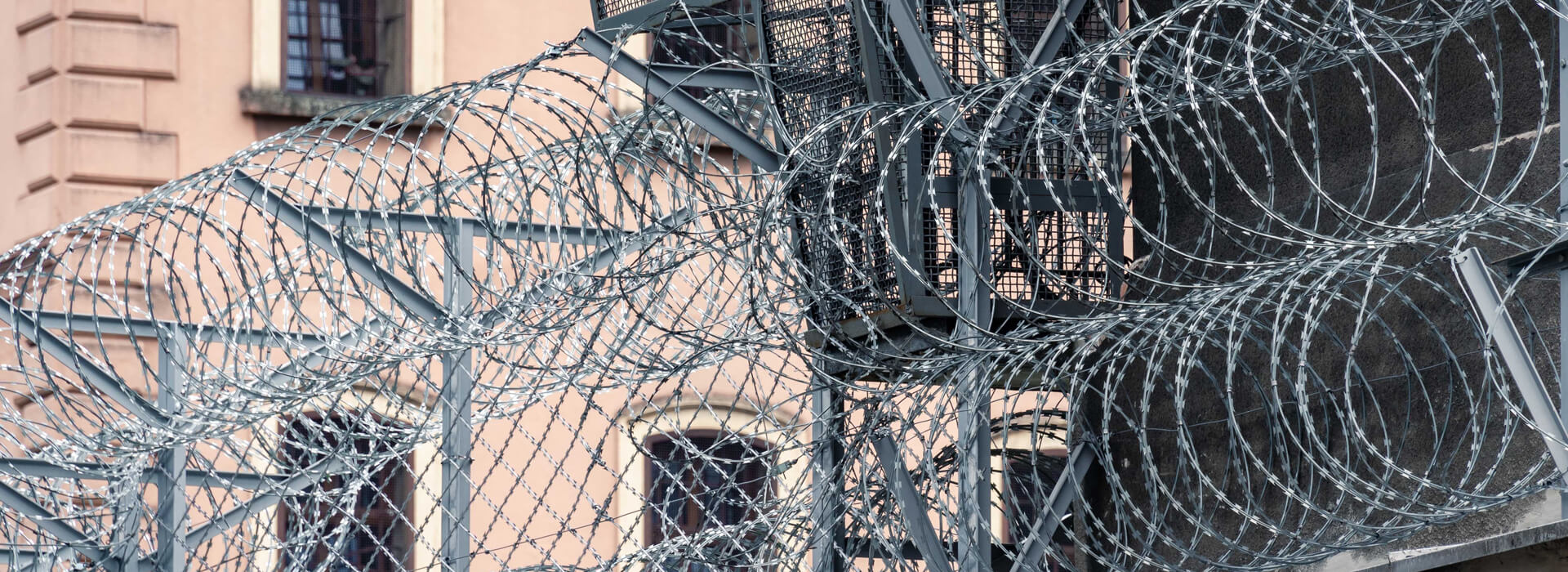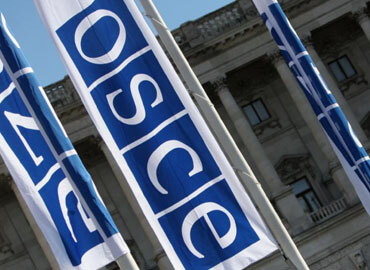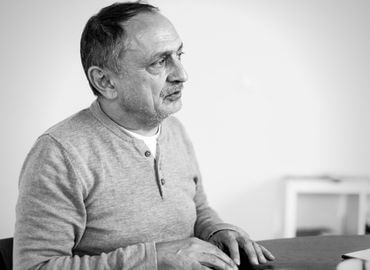Policy brief by iSANS – the International Strategic Action Network for Security
October 2023
Enforced disappearance as a tool of political repression in Belarus in the past and the present
Enforced disappearances have been used by the regime of Aliaksandr Lukashenka for a long time as a tool of political repression to intimidate critics spread terror within society. The most resonant cases include four enforced disappearances and alleged political assassinations of well-known critics of the regime in 1999-2000: an influential opposition politician, former Minister of Internal Affairs Yury Zakharanka; a popular opposition politician, former Deputy Prime Minister and former head of the Central Electoral Commission Viktar Hanchar; a businessman, writer, publisher, philanthropist, and supporter of the opposition Anatol Krasouski; and an investigative TV journalist Dzmitry Zavadski. Several other political opponents of the Lukashenko regime were not abducted, but died in highly suspicious circumstances, including Deputy Speaker of Parliament Gennadz Karpenka and the editor-in-chief of the main opposition media Charter-97 Aleh Bebenin. Official investigation of all the cases was soft-pedaled and suspended, except the case of Zavadski where four former officers of a special force unit of the Ministry of the Interior were sentenced to life for abducting him, but no masterminds of the crime were identified. In the early 2000s, the former head of a special execution squad of the Ministry of the Interior in charge of implementing death sentences Oleg Alkaev fled to Germany and stated that he had evidence that Zakharanka, Hanchar and Krasouski had been murdered on the orders of the top Lukashenka’s associates. Former police officers, journalists, human rights defenders, and opposition activists carried out informal investigations and recreated the story of these crimes, including the names of the main suspects.
The OSCE PA resolution in 2002, the PACE report and resolution in 2004, the OSCE Moscow Mechanism report in 2011 and the UN Human Rights Committee concluding observations in 2018 called for holding a thorough, credible and impartial investigation of the cases of enforced disappearances in 1990-2000, ensuring that the victims and their relatives are informed of the progress and results of the investigation, identifying those responsible and ensuring that they are prosecuted and punished with appropriate penalties that are commensurate with the gravity of their crimes, ensuring that victims of enforced disappearance and their families are provided with full reparation, including rehabilitation, satisfaction and guarantees of non-repetition. However, an effective official investigation in Belarus is impossible to attain.
Impunity for the past crimes of enforced disappearance has emboldened the dictatorship to apply this heinous practice again. Throughout 2023, as part of the tightening repression against critics of the authorities, the Lukashenka regime has begun to apply long-term incommunicado detention against a number of leading imprisoned opponents of the regime recognized as political prisoners. They have been kept in full isolation from the outside world, are not allowed access by lawyers and relatives, and not able to communicate with the outside world. No information is available about their fate, whereabouts and health condition for several months.
International legal framework
Holding people in incommunicado detention, i.e. in complete isolation from the outside world, with no information to their families or no access to legal or medical assistance is a gross violation of states’ international human rights obligations, including under the International Covenant on Civil and Political Rights. The U.N. Human Rights Committee, charged with monitoring the implementation of the International Covenant on Civil and Political Rights, issued an authoritative statement on the interpretation of the ICCPR’s Article 7 on the prohibition of torture. In General Comment No. 20, adopted in 1992, the Committee recommends that legal and policy safeguards be taken by states against incommunicado detention. Enforced disappearance is a form of inhuman and degrading treatment both for the disappeared and their families, thus falling under the scope of the UN Convention against Torture and, together with incommunicado detention, are expressly prohibited in the situations of armed conflicts by 1949 Geneva Conventions. Being serious violations of international humanitarian law, according to the Geneva Conventions, they constitute war crimes and can constitute crimes against humanity.
The UN General Assembly, in its resolution 47/133 of 18 December 1992, proclaimed the Declaration on the Protection of All Persons from Enforced Disappearance as a body of principles for all States. According to the Declaration, any act of enforced disappearance constitutes a violation of the rules of international law guaranteeing, inter alia, the right to recognition as a person before the law, the right to liberty and security of the person and the right not to be subjected to torture and other cruel, inhuman or degrading treatment or punishment. It also violates or constitutes a grave threat to the right to life. States are under an obligation to take effective legislative, administrative, judicial or other measures to prevent and terminate acts of enforced disappearance, and in particular to consider them a continuing offence and to establish civil liability.
Developing the international law in this field, the UN General Assembly adopted by its resolution 61/177 of 20 December 2006 the International Convention for the Protection of All Persons from Enforced Disappearance. According to the Convention, an enforced disappearance is considered to be “the arrest, detention, abduction or any other form of deprivation of liberty by agents of the State or by persons or groups of persons acting with the authorization, support or acquiescence of the State, followed by a refusal to acknowledge the deprivation of liberty or by concealment of the fate or whereabouts of the disappeared person, which place such a person outside the protection of the law.” The Convention affirms that the human right not to be subjected to enforced disappearance is non-derogable. It specifies that the widespread or systematic practice of enforced disappearance constitutes a crime against humanity as defined by international law and that it must be recognized as such by States parties. Under the Convention, States parties are required to hold criminally responsible the perpetrators, as well as those who order, solicit or induce, attempt to commit, are accomplices to or participate in an enforced disappearance.
The Convention establishes that, when an alleged perpetrator of an act of enforced disappearance is present in any territory under the jurisdiction of a State party, this State shall take the measures that are necessary to establish its jurisdiction over the offence, unless it extradites or surrenders the offender to another State in accordance with its international obligations or surrenders the offender to an international criminal tribunal whose jurisdiction it has recognized. As of April 2023, 98 states have signed the Convention and 72 have ratified it or assessed to it.
in December 2020, all 57 OSCE participating States, including Belarus, adopted a new, expanded OSCE commitment to prevent and eradicate torture by taking the Ministerial Council Decision 7/20 by consensus. In this decision, OSCE participating States for the first time unanimously included fighting enforced disappearances in the OSCE commitment to prevent torture and incorporated prolonged incommunicado detention in their definition of what can facilitate torture and other cruel, inhuman or degrading treatment or punishment or can by itself constitute a form of such treatment.
Current cases of incommunicado detention in Belarus
Viktar Babaryka, presidential candidate in 2020, banker and public figure, has been isolated from other prisoners since February 2023 and is being reportedly held alone in a cell-type room (PKT) in Correctional colony No. 1. The reason why he was placed in the PKT and how long he will stay there is unknown. Babaryka last spoke with his family on February 6. A lawyer was able to visit him on the same day. Since then, no one has seen or heard of him, although by law calls to prisoners are allowed every week, meetings with a lawyer can be held without restrictions. The lawyer is not allowed to Babaryka under various pretexts. On March 16, complaints were submitted in this regard to the Department of Corrections, the Prosecutor’s Office of the Vitebsk region and the administration of the Novopolotsk colony. No answers were received. On April 25,2023, it became known that Babaryka was admitted to the hospital in Novopolotsk with a diagnosis of pneumothorax and traces of beating on him. According to the available unofficial information, Babaryka was beaten to the extent that doctors could recognize him only after seeing his name in the documents. According to the doctors, the patient needed serious treatment, however, already on April 27, he was taken from the surgical department of the hospital in Novopolotsk by “three employees of the colony in uniform and several people in civilian clothes.” Recently, it became known that Babaryka has health problems — heart failures, but the administration of the institution claims that the problems are “not serious.” In May 2023, Viktor Babaryka’s son, Eduard Babaryka, was sentenced to eight years in prison. Human rights community is united in the opinion that his conviction is the regime’s revenge on Viktar Babaryka. Relatives cannot receive news from Eduard Babaryka as well.
Igar Losik, journalist and blogger, creator of the popular channel “Belarus of the Brain”, has also been in a cell-type room of Correctional colony No. 1 for a long time. He, along with Viktor Babariko, is kept in an information vacuum. Visits by lawyers and relatives are prohibited for him, correspondence is not transmitted. Losik went on hunger strikes several times and, in March 2023, cut his arm and neck in protest against the threat to send him to a punishment cell. The administration of the colony commented that the cuts are not serious. Igor Losik’s wife, Daria Losik, publicly addressed Lukashenka: «It seems that you have gone too far. One of the investigators had an opportunity to personally see this when right before his eyes my husband began to cut his hands, trying to say goodbye to life. Fortunately, he was saved this time. But, apparently, he is not going to stop – after the incident, Igar announced the beginning of a dry hunger strike. This is an extreme step that he was forced to take. My husband’s motives are simple: it is a colossal disenfranchisement that he faced.» Daria said that she will do everything to make the situation with Igar as transparent as possible and she will not stop fighting no matter whatever it takes for her. In January 2023, Daria Losik was sentenced to two years under charges of promoting extremist activities for an interview with the opposition media about her husband, where she called him a political prisoner.
Maria Kolesnikova, head of Viktar Babaryka’s election campaign, was abducted on September 7, 2020, in the center of Minsk. After she was sentenced to eleven years of imprisonment, Maria has often been held in a punishment cell. On November 29, 2022, Maria’s relatives learned from anonymous sources that after being held incommunicado for several weeks in a punishment cell, Maria was taken to an ambulance hospital in Gomel. At first, even Maria’s father was not told about the diagnosis: according to the authorities, they needed a written request and Maria’s statement of permission for this. Later, the relatives were informed of a diagnosis (a perforated stomach ulcer), and Maria’s father was allowed to see his daughter to confirm she was alive. The 10-minute meeting was held under the supervision of a doctor and colony staff. Soon Maria was transferred back to the colony. There has been no news from Maria since February 2023. The family is not even informed what type of cell she in presently held. The last letter from her came on February 15. The administration of the colony does not allow her letters, calls and even meetings with a lawyer. “As Maria’s family, we want and have the right to know the truth about her health, the reasons for her hospitalization and the conditions of her detention,” said Tatiana Khomich, Maria Kolesnikova’s sister.
Maxim Znak, lawyer of Babaryka’s headquarters at the 2020 presidential elections, member of the Coordinating Council of the Belarusian opposition, who is serving his term in Vitebsk colony, was last seen by his lawyer on February 2, 2023. It was also in February, when the last letter came from him. Maxim Znak’s sister, Irina Kozikova, has left Belarus. She wrote about this in her Instagram: «.. our family was forced to leave the country. We never wanted to leave. I’ve always said that the only thing that can make us leave is a threat to my family’s safety. Unfortunately, this happened — and after the search and 15 days of detention of my husband, we made this decision. We left most of our usual life — an apartment, a cottage, my ceramics classes, beloved friends and relatives. But the main thing is that our family is together.”
Mikalai Statkevich, veteran democratic activist, was abducted on May 31, 2020. According to his wife, Marina Adamovich, “the car was blocked right in the middle of the road. We were going to a picket of support for Sergei Tsikhanousky – he was detained a day earlier. The peculiarity of this presidential campaign is that no one considers it necessary to explain or name something anymore, so with no explanation my keys were taken away, Mikalai was pulled out, and I remained in a locked car. After all this, all I had to do was go to the police department, write a statement about the abduction,” Marina recalls. There has been no information about Mikalai’s condition and whereabouts, who is supposed to serve time in Glubokaya colony No. 13. In the beginning of October 2023, Marina Adamovich wrote on her Facebook page that a lawyer was not allowed to see Mikalai again: “We have a complete lack of news. 232 days. Once again, I was in the colony. Once again, the lawyer was not allowed in.”
Andrzej Poczobut, journalist and one of the leaders of the Union of Poles of Belarus, who is serving time in a high-security colony, is isolated from other political prisoners and from those people who could transmit information about him to the international community. His letters are censored, his contacts are restricted. Even the place of his imprisonment was initially kept secret. The head of the Belarusian House in Warsaw, Ales Zarembiuk, suspects that he has been tortured, both mentally and physically, since it was clear from the photos and footage from the trial that appeared in the media that he had lost a lot of weight and was in poor physical shape.
Relatives of disappeared persons, unaware of the fate and whereabouts of their loved ones, are often caught between hope and despair, wondering and waiting, sometimes for years for news that may never come. Eduard Palchis’ wife says that his daughter, who is now a year and 10 months old, knows her father from photographs only and is waiting for him. Daria Losik, the wife of Igar Losik, says that it is unbearable for her to watch her daughter hug the phone, seeing a photo of her father in it. According to her, Igar’s parents are also very disturbed, especially by the news about hunger strikes. Maxim Znak’s parents are going through his imprisonment hard. “There are no hopes anymore”, his father says and asks his friends not to say in front of him that everything will be fine.
The suffering of the families of forcibly disappeared persons which is a form of torture by itself, is exacerbated by the indifference and cynicism of authorities in the face of their sufferings. Acknowledging the state of relatives of the abducted and incommunicado detained, the Convention for the Protection of All Persons from Enforced Disappearance defines as “victim” not only the disappeared person but also any individuals who have suffered harm as the direct result of an enforced disappearance, such as family members (article 24). The feeling of insecurity generated by this criminal practice is not limited to the close relatives of the disappeared and incommunicado detained; it extends to the communities to which the disappeared person belongs and to the general public.
The cases listed above are a few examples of incommunicado detention of persons currently subjected to enforced disappearance by the Lukashenka regime. Despite the fact that Belarus is not a party to the Convention for the Protection of All Persons from Enforced Disappearance and of the Rome Statute, it is bound by the provisions of the Declaration on the Protection of All Persons from Enforced Disappearance, the International Covenant on Civil and Political Rights, and the Convention against Torture. Belarus’ obligations were confirmed by the UN Human Rights Committee, which reviewed individual complaints by relatives of the disappeared in Belarus and concluded that it must carry out proper investigation, bring perpetrators to justice, pay compensation to the relatives, and publish materials of investigations. However, the Belarusian government repeatedly stated that it did not have a legal obligation to implement views of the Human Rights Committee on individual complaints and took no action to investigate allegations of disappearances. In November 2022, Belarus denounced the First Optional Protocol to the International Covenant on Civil and Political Rights, thirty years after its accession.
Recommendations on urgent actions to address the crime of enforced disappearances in Belarus
The practice of abduction and incommunicado detention in Belarus did not start in 2023. Taking into consideration information about gross violation of the rights of political prisoners available to the international community and the history of torture and killings of political opponents by the regime, tendency of incommunicado detention raises very serious concerns for the lives of the detainees and requires immediate action by the international community to influence the regime in order to stop these crimes, save lives, and bring the perpetrators to justice.
Ending the ongoing enforced disappearances, their effective investigation, ending impunity of perpetrators and masterminds and holding them accountable, and ensuring justice to the victims and their relatives is an urgent task for the international community. Equally important is effective investigation of the past crimes of enforced disappearances, regardless of how much time has passed since they were committed. This is essential for truth, justice and reparation for the victims and their families, for preserving historical memory, and for prevention of new crimes of enforced disappearances. The Belarusian authorities should immediately stop incommunicado detention, allow access of lawyers, medical workers, family members and international observers to prisoners.
UN human rights bodies and special procedures, including the UN Working Group on Enforced Disappearances, OHCHR examination of the human rights situation in Belarus, and the Special Rapporteur on the Situation of Human Rights in Belarus, should vigorously address enforced disappearances in Belarus and engage in active critical dialogue with the government.
The UN member States and OSCE participating States should put, according to their international obligations and OSCE commitments, including MC Decision 7/20, the most serious pressure on the Belarusian authorities, so that incommunicado detention of political prisoners in the country is immediately stopped, they are provided access by their lawyers, medical workers, relatives, and international observers, and are able to communicate with the outside world. Such pressure should include public statements, special events, official inquiries, and adoption of restrictive measures in respect of Belarusian officials responsible for the commitment of this crime.
The International Committee of the Red Cross should request urgent visits to persons currently held in incommunicado detention in Belarus.
On the birthday of Mikalai Statkevich, his wife, Marina Adamovich, wrote on her Facebook page: “Please congratulate him! He probably won’t receive any birthday greetings, but the goal of his isolation – making people forget about him – should not be achieved.”











